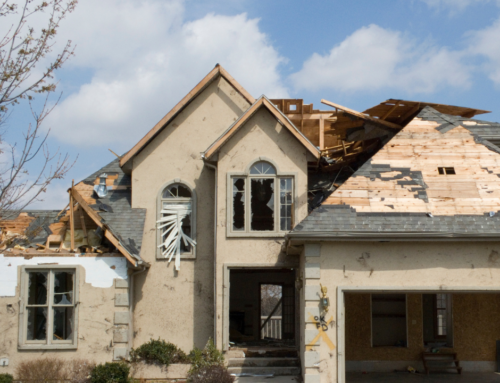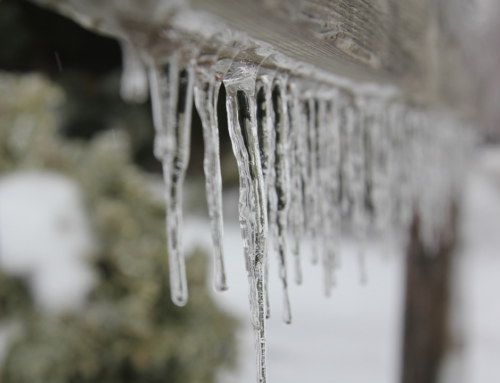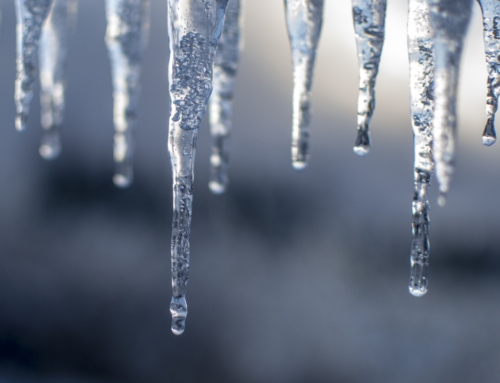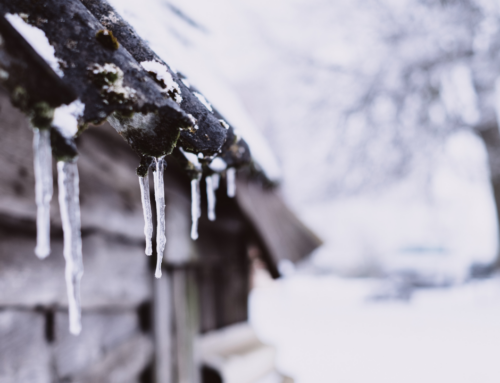The Impact of Michigan’s Winter Weather on Home Maintenance
Michiganders won’t need any reminding of the fact that winter in The Great Lakes State can be pretty brutal; a recent article listed Michigan as having the third worst winters of the 50 US states, behind only Minnesota and North Dakota. While there is, of course, a degree of regional variation, few parts of the US experience as much wintry precipitation as Michigan, with much of it falling as snow – particularly in the northern part of the state. But whichever area of Michigan you call home, the winter season can be an unforgiving time for homeowners, with a significant amount of maintenance required to prevent your property from water damage. Below, we list some of the issues you’re most likely to encounter in the coming months – and some of the things you can do to combat them…
Prevent Ice Dams on Your Roof
Perhaps the biggest thing to be wary of where your roof is concerned this winter is the formation of ice dams, which occur when your gutters no longer function as they should and snow and ice are unable to drain through, resulting in a build-up over time. The upshot? Water can no longer flow off your roof and, instead, is liable to start running down your interior walls. The effects can be unsettling and expensive, even causing structural damage to your home. Making sure your attic is properly insulated is a key means of dealing with ice dams before they have a chance to form, keeping the warm air inside and preventing it from reaching the roof. It goes without saying that you should also keep your gutters free of leaves, twigs and any other debris and make sure that any other potential entry points for snow and ice are sealed up.
The Importance of Maintaining Your Siding
Another good reason to clean your gutters regularly is to help protect your siding, which – along with your roof – is first in the firing line when the bad weather hits. With water expanding by up to ten per cent as it freezes, any pre-existing cracks in your siding can quickly become exacerbated in icy conditions. And when that water melts, it has to go somewhere, potentially causing a leakage inside your home as well as the appearance of damp spots. Damaged siding can also undermine your property’s insulation system – sending your heating bills up – while there’s an obvious aesthetic cost, too. Here in Michigan, regularly checking up on the condition of your siding is a must going into the winter. Also, depending on where in the state you live, and the likelihood of you encountering fierce bouts of snow and ice on a regular basis, you should think carefully about the type of siding on your property; fiber cement, for example, tends to stand up better than vinyl or wood.
Protecting Your Home’s Foundation During Winter
What makes old or neglected siding so vulnerable during the wintertime is the freeze-thaw cycle. And, unfortunately, much the same can be said for the foundations of your home. Any cracks, obviously, are ripe for water and ice to wreak havoc, but you also have to pay close attention to the ground around your foundations. Soil is susceptible to the same freeze-thaw cycle, applying sizable pressure to the walls of your foundations. By ensuring the areas around your foundations have a proper drainage system in place, you can help minimize the likelihood of water accumulating in the first place. Try and keep clearing snow away, too; left in place, snow can weigh down heavily on your home’s foundations, affecting their load-bearing capabilities.
Prevent Frozen Pipes: Protect Your Home and Family
Left unchecked, a frozen pipe can have disastrous consequences and can pose a very real danger to the wellbeing of you and your family. When the water temperature inside a pipe dips below 32F, water freezes, expands and exerts pressure on its walls, potentially causing it to burst and ultimately leaving you with anything from a leakage to a flood – and we probably don’t need to remind you just how serious the latter can be. A lack of running water is one obvious sign you might be dealing with a frozen pipe, as is a foul smell coming from your drain (caused by ice blocking the way of food, grease and waste odors). Should you get to that point, act quickly by turning off the main water valve. However, you should really try and get ahead of the game; insulate any pipes you feel may be at risk and keep warm air circulating around your house as much as possible.
Combatting Window Condensation
You’ll be familiar with the condensation process: warm, moist air coming into contact with cold surfaces, such as windows, leaving a distinctive mark behind. It’s a particular problem in winter and, while temporary condensation isn’t necessarily anything to worry about, the stuff that lingers certainly can be. Moisture may eventually run from your windows to your walls, damaging wallpaper or paintwork. Musty odors can occur and, perhaps most alarmingly, mold and mildew can grow. If condensation is likely to become an issue for you, or it already is, you should be looking to better the ventilation system around your house as a whole to reduce the build-up of moisture. Consider using a dehumidifier and, yes, if you’re a plant lover, you may – sadly, and no doubt reluctantly – have to cut down on having too many on the go!
We’re Here For You!
Water damage can rear its ugly head at any time and can also present itself in several different forms, from a small—but nonetheless troubling—damp patch on a wall to a full-blown flood. Here at X-Cel Restoration, we provide a 24/7 emergency service for people across Michigan and have more than 30 years of experience in handling water damage repairs. Whatever the scale of your problem, we’ll be on hand to respond straight away.




